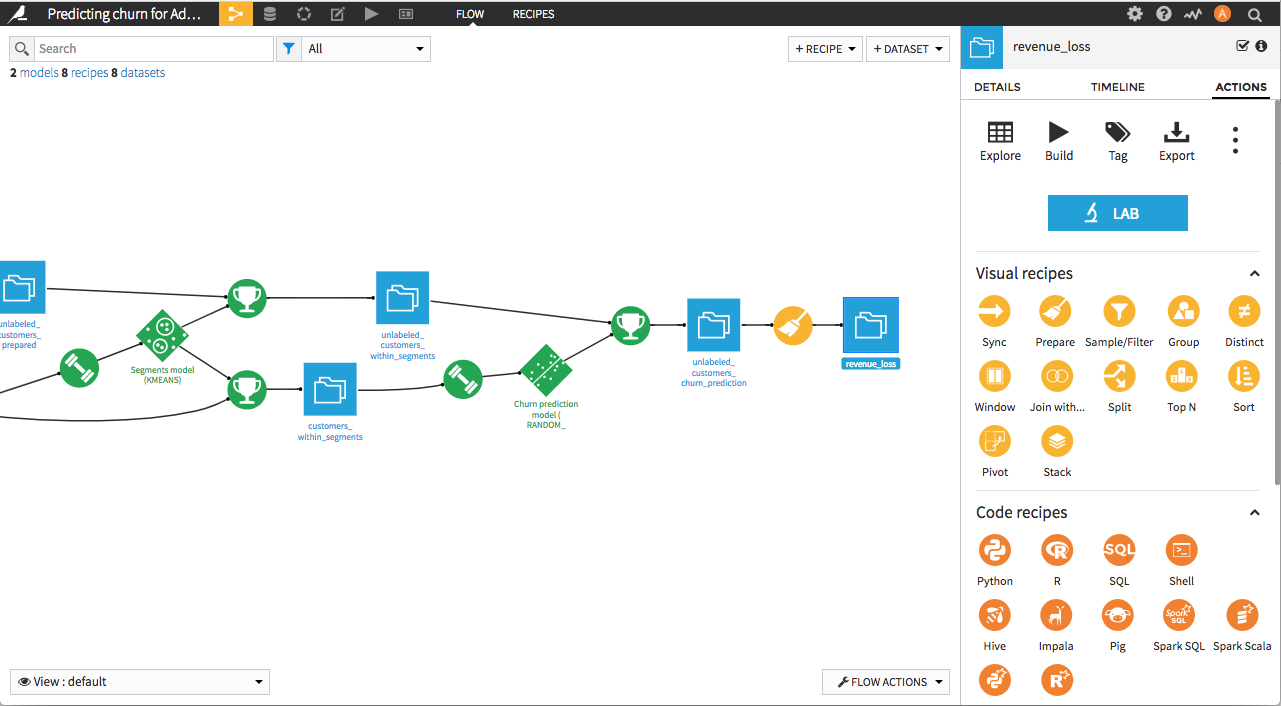Dataiku releases new central hub for enterprise analytics, machine learning and data science

Florian Douetteau, CEO of Dataiku
With a wide range of new and improved features aimed at making data science, machine learning, and advanced analytics accessible to organisations as a whole, data science software maker Dataiku has released Dataiku 4.1.
The new and improved software platform acts as a central hub for technical and non-technical users to prototype, build, scale, deploy, and manage advanced data science products.
“We are focused on building a platform that is a single hub for an enterprise’s data science and machine learning development – that’s what this release reflects,” said Florian Douetteau, CEO of Dataiku. “Many of our customers already use Dataiku with hundreds of users from all different backgrounds, from data engineers, to developers, to non-technical analysts, to perform advanced analytics and to develop data science solutions. This latest release strengthens enterprise scale development and deployment of these solutions among and across teams.”
Building upon the needs of Dataiku customers who have hundreds of users across their organisations around the world relying on the software, Dataiku 4.1 has been designed to accelerate scalable deployment while maintaining its powerful core functionalities such as:
- point-and-click interfaces for data preparation and analysis
- customisable tools to facilitate cutting-edge and efficient data science
- straightforward solutions for deploying, monitoring, and governing models in production.
In its latest release, Dataiku is introducing new features that further expand its capabilities as a single platform for everyone, including coders and clickers, spread across any sized organisation around the world. “This release plays to our strength of enabling our largest customers to propagate data science expertise throughout the organisation,” said Douetteau. “In fact, organisations who deploy Dataiku at scale have on average a 4:1 ratio of non-coding data specialists to data scientists using Dataiku.”

Data preparation tools for coders and non-coders
Dataiku 4.1 introduces new data preparation “recipes” within the Dataiku graphical interface that bring powerful analytical functionalities to non-coders, including pivoting, sorting, and splitting datasets.
For coders, the latest release brings advanced visualisation libraries like RShiny and Bokeh for rapidly creating engaging interactive web applications within dashboards. Additionally, RMarkdown reports let users easily share their results outside of Dataiku.
Live model competitions – Compare models in real-time
With Dataiku’s “live model competition,” users compare the performance of a batch of machine learning models competing in real time without waiting for the entire training of the model. This reduces the training time and resources used by interrupting or resuming the competition once it yields satisfactory insights.

Additionally, model ensembling, which exploits the strengths of various models by combining different algorithms, is now possible without writing a single line of code.
Isolated coding environments for project stability
It is common for an organisation to have many projects using different versions of Python, R, and libraries. Dataiku 4.1 now supports reproducible environments, which properly isolate projects and reproduce the runtime condition throughout the deployment phase. This alleviates the worry about one individual upgrading a package, because deployed code will remain stable.
Dataiku 4.1 bolsters the product’s end-to-end reach by introducing a versatile API node that scores models, runs custom Python and R functions, and accesses to datasets via parameterised SQL and custom functions. Additionally, the new release provides an extended toolkit for plugins.
Comment on this article below or via Twitter @IoTGN
